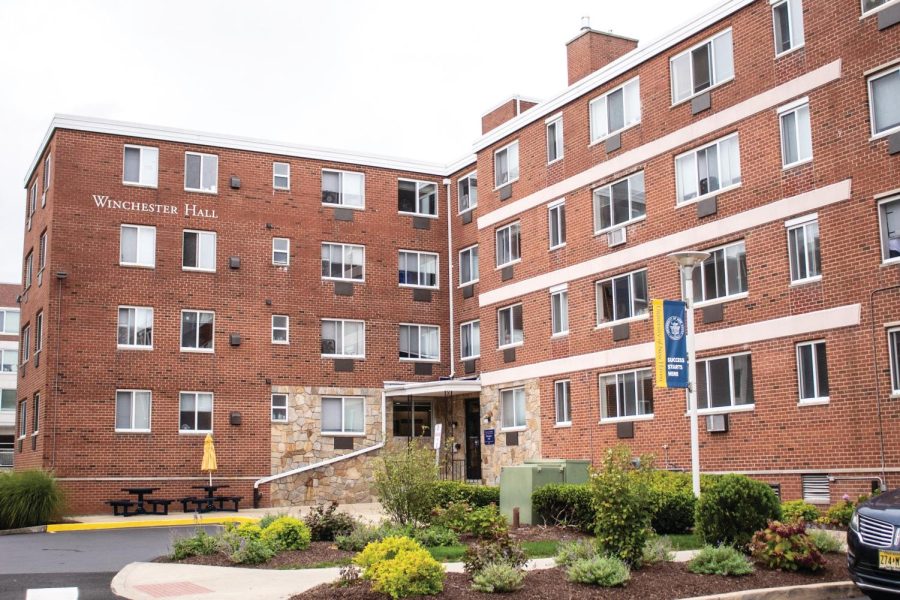Does the lack of soundproofing in university residence halls violate personal privacy?
The outside of Winchester Hall, Oct. 9, West Haven.
Although privacy is not a right directly guaranteed in the U.S. Constitution, it is still something that everybody expects to have. This is why the founders created a handful of privacy-oriented amendments after ratification because they understood the importance of it after fighting a revolution.
Fast forward 245 years and people have even higher expectations of privacy, especially in their domicile as the house is a place for pure privacy.
Should students in their residence hall rooms have that same expectation for privacy? In theory, they should. A residence hall room is where a student lives and where they conduct their private life. The people who room together expect that their roommates will keep things private, and there are some things that are expected to not leave the room.
In this case, students can clearly hear full conversations from residence hall rooms when walking down the hallways of older residence halls like Winchester. Is this lack of soundproofing a violation of personal privacy?
Bobby Zeller, sophomore forensic psychology major and a Winchester Hall resident, said, “You shouldn’t be able to hear someone having a conversation at a moderate volume while walking by.”
The University of New Haven student handbook mentions the word “privacy” 21 times, mostly in relation to the Family Rights and Policy Act, how privacy is important and what is done to keep information private.
The school does care about students’ privacy, as can be seen from page 166 in the student handbook about drone policy. “This policy has been enacted in order to protect and safeguard the safety, security, and privacy of students, faculty, staff, visitors, and all other individuals that may come to the campuses of the University of New Haven, or to any other property, owned or controlled by the University of New Haven.”
Inside residence halls, however, there has been little done to combat privacy issues. Thin walls are common across residence halls at the university, but students cannot usually distinguish individual words and piece together conversations through walls.
Gabby Gorodetsky, a sophomore marketing major, recalled her time living in Westside Hall her first year. She said, “You could hear things from the other room in the suite, but nothing distinguishable.”
The sounds that are heard generally come from loud TVs, loud music or shouting, and individual words cannot be pieced together to understand full conversations. But full conversations can sometimes be heard while walking down the halls of some residence halls.
Sophomore homeland security major Rich Bessel said, “I don’t have a problem with noise, but my roommates can get loud sometimes.”
Students expect that they should be allowed to say whatever they want in the safety of their room without repercussions.
To better preserve privacy in residence hall rooms, Gorodetsky said, “Not sure it is entirely feasible, but better infrastructure. Better doors definitely is a good start.”
Zeller agrees.
“I have to kick my door open because of how poorly it is fit in the frame,” he said. Bessel said about the doors, “They are poorly fit and they have big gaps underneath.”
Zeller said, “It is the school’s job to protect your privacy in your room, to a reasonable extent. We pay them to live here, they should at least afford us some semblance of privacy.”

Lismarie Pabón is a senior majoring in criminal justice with a concentration in investigative services and minoring in photography. Lismarie joined The...








